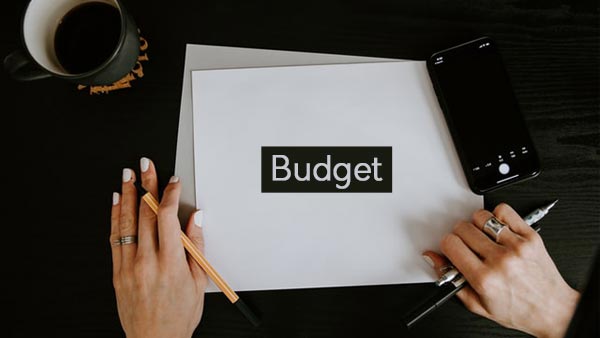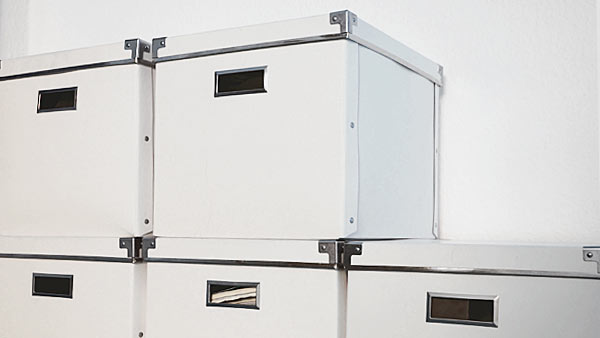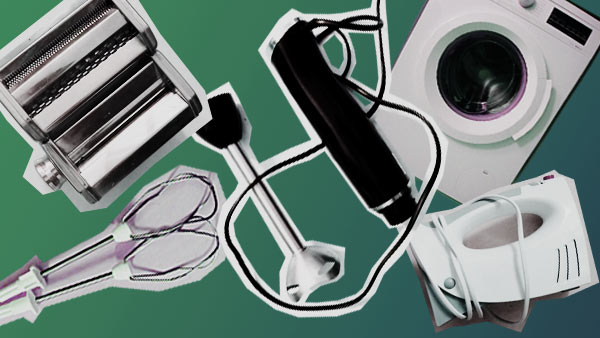After the financial crash of 2008, many people lost their trust in banks and didn’t think they were there to help them. In a way this is obvious; banks are just like any other business. They want to make money. And they do that by selling products to their customers.
Whether its bank accounts, loans, insurances, or credit cards with too good to be true rates, banks want your money to make money for themselves. If you ever happen to have problems with repaying your credit card bills, then you will see interest rates applied that make your bills grow faster than the weeds on your lawn.
You might ask yourself, why would I even need a bank? Can’t I just store the money under the mattress, in a sock, or install a safe behind a watercolour painting?

Table of Contents
Can we live without banks?
Not really. Banks do generally make your life easier. With the help of banks you can make sure that your bills are paid on time, and they are more effective in storing your money than the above mentioned options. They can work for you instead of you working for them, if you are mindful and do a bit of research on how to best manage personal finance. In short, once you learn how to work your money, rather than letting them serve themselves only, you can figure out how they can also serve you.
There are many areas where a bank account is absolutely necessary.
Why is having a bank account a good idea?
Current accounts – these are for getting your wages paid, setting up direct debits for paying bills and rent on time. Having an overview of what is coming in and going out makes looking after your money far easier than having to count physical bills and coins. Plus, current accounts usually come with a debit card, which you can then use to pay for items in store or withdraw money whenever you want or need to.
Saving accounts – a saving account can be a short and long-term option to park money for a foreseeable time and gain interest on it. The sock or the envelope of cash under the mattress won’t do that!
Brokerage accounts – if you want to invest in stocks and shares, set up ETF saving plans, or buy bonds – a brokerage account is a must have. Your brokerage account is where your shares are stored and where you would receive your dividend payments.
Nowadays, there are a lot of options in regard to which bank to choose. With the popularity of many Fintech banks, there are also options that go beyond your normal high street banks. Before choosing the right bank, it is best to figure out what is important to you. Some questions to tick off could be:
- Is it important that the bank account is free of charge?
- Can I get a debit card, or credit card easily and without hassle?
- Does the bank have a mobile friendly interface?
- Is the online user interface reliable and easy to use?
- Does the bank have many ATMs and are they close to home and work?
- Are there any limit or fees for withdrawing money?
- Are there any limits or fees for transactions?
- what are the charges on an overdraft?
Why a Current Account?
Everybody who has bills to pay and is getting paid for something would require a current account.
The current account is where you’d keep the money that is meant to be spend on rent, bills and day-to-day expenses. Usually, these accounts do not pay any interest for money kept in the account. Until 2022 some countries such as Switzerland, Sweden, Denmark and the euro area had negative interest, which meant that the bank charged interest on money kept in the account when it reached a certain amount.
This, however does not apply to the UK as of early 2022. In fact, UK interest rates have been rising fast since late 2022.
Thanks to technology, banking has become more convenient. Some banks offer very intelligent and intuitive user friendly interfaces that makes banking and looking after your money a breeze. Especially, in the UK there are new fintech banks out there that aim to make banking easier and perhaps even fun.
Savings Accounts
It is good practice to have a nest egg of at least 3-6 month of income, for times when life doesn’t go according to plan. This emergency fund should be easily accessible when you would need it and should not be invested in anything else. Interest rates are rising. And even though the rates are not at the same level as inflation, it is still best to keep your money in a savings account that pays some interest rather than none.
ISA’s
There are also easy access cash ISA’s. Up to £20,000 can be invested per year into one ISA in the UK. There is no tax on interest earned in a cash ISA.
There are many different ISA’s available. The annual allowance of £20,000 can be used for one type of ISA or can be split across many different types of ISA’s. More about ISA’s and the different types can be found here.
Fixed Rate Savings Accounts
These accounts offer a fixed interest rate for a fixed amount of time. This means that the money put into the account cannot be withdrawn within that period. The interest rate depends on the amount of time the invested money is locked in. The longer the term, the higher the interest rate. Unlike ISA’s the interest earned is taxed. However, your personal saving allowance of either £1000 or £500 can be used towards getting a tax break on the interest earnings. Whether your allowance is £1000 or £500 depends on your income tax band.
Some accounts allow you to break the contract early. However, this comes with the downside of either losing your earned interest or even paying a penalty ending up with less than what was put in initially.
Brokerage Accounts
If you want to invest on stocks, shares, bonds and ETF’s you need a brokerage account. When deciding on which brokerage is for you, it is good to check the services a provider offers, and the cost of these accounts. Some providers offer services or tools to help you, especially when you are a novice investor. Others are more tailored to the experienced investor, offering little, if any, support or help. Prices for transactions can also vary widely. Plus, some can have a limit on order values.
Joint Accounts
As the name suggests, a joint account is an account two or more people share. They do not have to be married or have some kind of legal partnership. Two friends, for example, could open a joint account. For couples it could be a convenient way to manage household expenses such as rent, bills and food, or two people could open a joint savings account to save up together for the future. A joint account will grant full access to the money to both parties and makes them equally liable for any overdraft on the account, so it should only be used by parties who trust each other.
How banks provide convenience
In conclusion, banks provide convenience. We get our wages paid into them, and don’t have to walk around town with a stash of cash in our pockets. Via our bank account we can make sure that our rent and bills are paid. We can save money in a more or less secure place and don’t have to be scared of burglars. Some banks are also covered by security schemes. The FSCS is funded by a levy on authorised financial services companies and it is always good to check whether a bank is covered by the FSCS or equivalent. In the UK the amount covered by the Financial Services Compensation Scheme is £85,000 per person or per company.
Please note: A bank can have a subsidiary in a different name. In which case, the FSCS cover would include the bank and its subsidiaries. They would not be seen as separate entities. Hence the FSCS would only cover £85,000 for both in total and not individually.
Finally, bank fees can vary widely. Sometimes, it is cheaper paying a small fee monthly for getting perks such as a metal card, mobile phone, gadget insurance and free transactions and withdrawals. It would makes sense to study ones habit or behaviours or even change them to get the best and most cost effective deal out of a banks’ offering.
Articles on the Wiseabout.money website may contain affiliate links. If you click these links, we may receive compensation. This has no impact on our editorial and any money earned helps us to continue to provide the useful information on our site.









